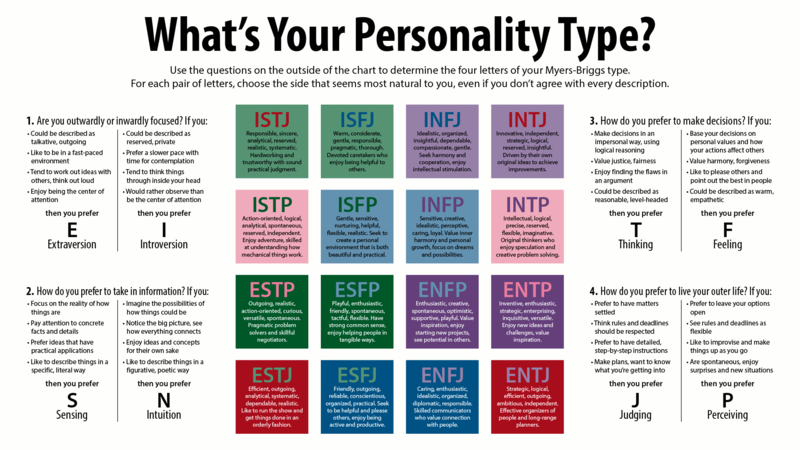Have you ever taken a personality quiz?
Or maybe a relationship quiz in Cosmo? Do you secretly say to yourself, “Hey, how do they know I do that?”
Personality quizzes are offshoots of the personality type work done by psychologist, Carl Jung in the early to mid 20th century. Jung’s personality type work became the basis for the work of Isabel Myers and Katherine Briggs, whose Myers-Briggs style indicators have become almost synonymous with “type.”
The Myers-Briggs model has been changed, adapted, and applied to almost everything that has to do with personality style or type—including personality quizzes in Cosmo.
I have been fascinated by personality inventories, learning styles, teaching styles, and leadership styles ever since my early 20s in my first teaching job. As a teacher, I had a preferred style, but I was pretty well-balanced in each of the quadrants.
So, I was surprised when I took a leadership assessment recently and found that I was living in only one quadrant as a leader.
Ouch.
My first thought was, “What happened?” Followed fairly quickly by, “Where did I go?”
I won’t get into an obvious discussion of the differences between being twentysomething and being much older than you might think I am (I’m definitely not saying). But, I will acknowledge that in that process of growing up, I lost sight of the importance of connectedness and interdependence.
I don’t think anyone loses things like connectedness and interdependence on purpose. In fact, Brene Brown talks about this in her latest book, Dare to Lead, when she talks about putting on our “armor.” As we experience loss and hurt and grief and disappointment, we put on layer after layer of protection, thinking that we can keep ourselves from that kind of vulnerability.
In reality, we build walls around ourselves that keep us from being real with the people we love and with ourselves.
Now I am thinking, “Sh*t.”
So many of the pieces of me that I thought were my “style” are in fact armor, including the workaholic patterns that all live in the quadrant I have been leading from.
My comfort zone has been being the boss, making the tough calls, relying on myself, working hard, working late, knowing more than the next person, using sarcasm and humor, and being extremely competent. But it’s time to lean in to that discomfort and stretch some different muscles.
For me, that means being social, having conversations that are not about work, being the listener instead of the speaker, asking more questions, and not being the expert. All of these things make me feel very uncomfortable.
Taking off our armor and choosing to grow takes courage.
I am learning to “sit” with the feeling of discomfort and stay in the conversation, rather than retreat into my work. I am learning that it is okay to be uncomfortable as I learn to listen more and not be the center of the discussion. I am learning to accept that what I thought was me being funny was me putting on armor—and I am taking it off in order to simply be with people.
There is a part of me that wants to push back—that wants to argue that everything about me can’t be wrong. I am sitting with that feeling too. I am recognizing that feeling for what it is: scared and insecure.
This quote really helped me to understand why I need to take off my armor:
“While a redwood tree can grow 360 feet tall, the roots are only, on average, about 10 feet deep. This is because they spread their roots outward, searching for other redwood trees. Their roots intertwine under the ground, and they hold each other up. A redwood tree cannot stand on its own, and neither can we.” ~ Elle Luna
I have been protecting myself from being interconnected and thinking it was strength. In reality, true strength comes from working together.
So, I’m coming out.
Of my comfort zone, that is. It’s time for me to take off my armor and stretch some other muscles. It’s time for me to grow.
How about you? ~
~












Read 1 comment and reply